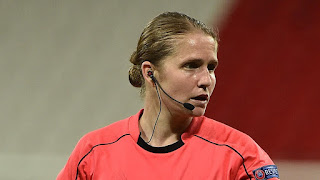The preparation of the national team matches is progressing against a background of difficulties due to the Covid-19 pandemic. The implementation of the UEFA Return to Play Protocol (Protocol), which includes a rigorous testing programme, is aimed at ensuring that matches can go ahead as planned. In addition, and based on the UEFA Protocol requirements, most member associations have managed to obtain from their competent national/local authorities exemptions allowing teams to travel to the match venue and their players to return to their clubs after their national team duty. However, positive Covid-19 cases from tests conducted before the matches may result in groups of players or entire teams being placed into quarantine and national associations being unable to field a team for a specific match, following a decision of the relevant competent national/local authority. Based on this situation and given the specificity of the national team competition matches, the UEFA Executive Committee - on 28 August 2020 - approved the following principles applicable to the above-mentioned competitions:
1) should a group of players of a team be placed into mandatory quarantine or self-isolation following a decision of a competent national/local authority, the match will go ahead as scheduled as long as the team has at least 13 players available (including at least one goalkeeper), irrespective of any other provision of the respective competition’s regulations (including the deadline for the submission of the list of players), provided that all players are eligible to represent the Under-21 or the relevant national team in accordance with the applicable FIFA regulations and have been tested negative as required by the UEFA Protocol;
2) if a national association is not in a position to field a team with the above-mentioned minimum number of players (i.e. 13 including at least one goalkeeper), the match will, if possible, be rescheduled at a date to be fixed by the UEFA administration, which shall also have the power to assign it to a venue which may be in a neutral country (within the territory of a UEFA member association) if deemed appropriate; in any event, the home team will remain responsible for the organisation of the match and all related costs;
3) if the match cannot be rescheduled, the UEFA Control, Ethics and Disciplinary Body will take a decision on the matter. The national association that is responsible for the match not taking place or not being played in full will be declared to have forfeited the match by the UEFA Control, Ethics and Disciplinary Body unless the latter comes to the conclusion that both or none of the teams is/are responsible for the match not taking place or not being played in full, meaning the match cannot be declared as forfeited. If the match cannot be declared as forfeited, the outcome of the match will be decided by drawing of lots (i.e. win 1-0, loss 0-1 or draw 0-0) carried out by the UEFA administration;
4) if any member of the appointed referee team for a match tests positive for Covid-19, UEFA may exceptionally appoint replacement match officials who may be of the same nationality as one of the national associations and/or may not be on the FIFA list.
Source: UEFA











